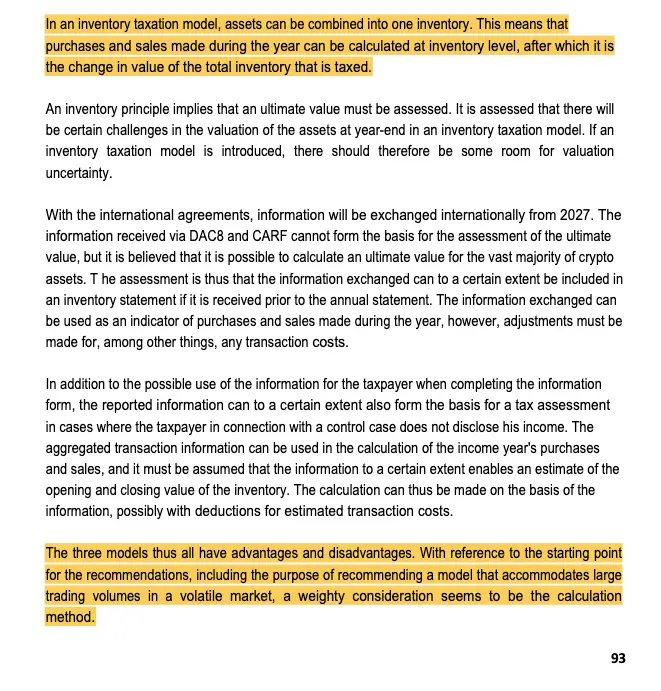The Denmark Tax Law Council is considering a bill that could tax unrealized crypto gains and losses held by Danish investors.
According to the council, all crypto assets should be taxed under a unified set of rules, which is set to start in 2026 potentially.
Denmark Seeks To Tax Unrealized Gains On Crypto Assets Starting 2026
On Wednesday, October 23, 2023, Denmark’s Ministry of Taxation announced in a 93-page report on crypto taxes that it is considering pioneering an unprecedented tax reform by proposing taxation on unrealized capital gains for crypto assets, starting January 1, 2026.

In the press statement, the ministry revealed its proposal that a 42% tax be applied to unrealized gains from crypto assets acquired since the launch of Bitcoin in January 2009. That means the new tax rate will apply to all future cryptocurrency acquisitions as well as cryptocurrencies acquired as far back as January 2009.
Hence, all crypto holders will have to pay this new 42% tax rate on unrealized crypto gains, irrespective of whether they sell their crypto holdings or not.
When justifying this new move, Rasmus Stoklund, Denmark’s Tax Minister, explains that a number of Danish cryptocurrency investors are being taxed unfairly under the current “capital gains tax” rule. Hence, there is a need to develop a new, simpler, unified set of tax rules for cryptocurrencies to address the imbalance between taxing gains and losses.
Rasmus mentioned that this new proposal will integrate crypto assets into the existing financial taxation framework, treating cryptocurrencies similarly to other investment assets, such as stocks and bonds.
He also added that crypto investors will be allowed to offset losses from one cryptocurrency against gains from another.
The proposal considers three potential models for taxing cryptocurrencies: capital gains tax, warehouse taxation, and inventory taxation.
Under the inventory taxation model, cryptocurrencies would be taxed alongside other investment assets, such as stocks and bonds.
The Denmark Tax Law Council added that the bill would require crypto-related service providers, including cryptocurrency exchanges, to “report information relating to their customers’ crypto transactions” in a way that would be accessible to all nations within the European Union.
According to Rasmus, the new bill would be introduced to the Danish Parliament in early 2025 and should take effect on January 1, 2026, at the earliest, if it is to become effective.
Denmark Is Not Alone
Denmark is not alone in recommendations regarding crypto taxation rules. This move by the Danish Tax Council comes amid a broader move from other countries to regulate cryptocurrency through taxation.
On September 5, Kamala Harris, the current US vice president and Democrat presidential candidate, endorsed a policy that would introduce a 25 percent taxation on unsold crypto assets in the US.
Also, the Italian government proposed raising the capital gains tax for Bitcoin holdings from 26 to 42 percent beginning in 2025.
The United Arab Emirates (UAE), on the other hand, has exempted all crypto transactions from having to pay value-added tax (VAT).










